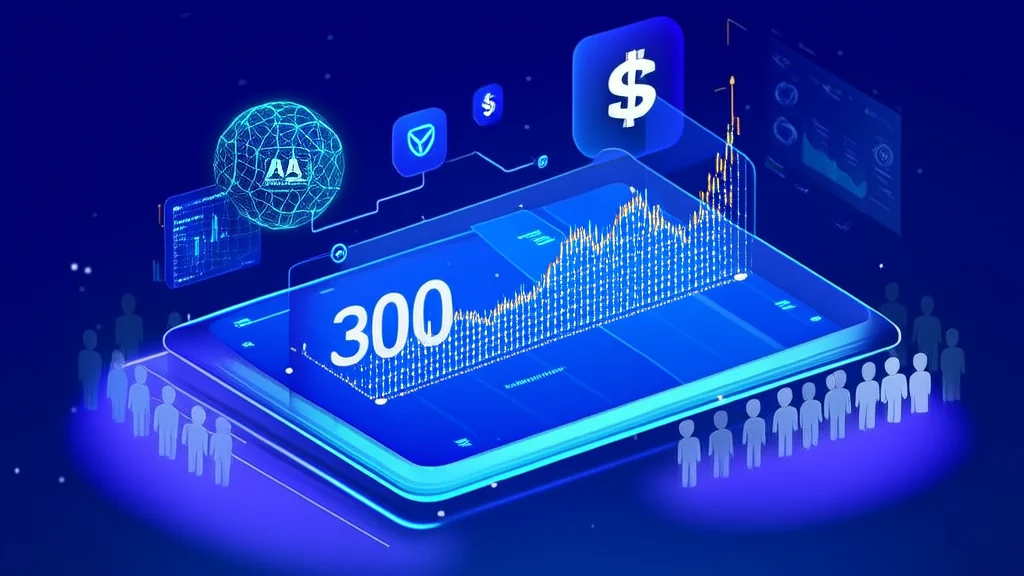AI in Action: Transforming Startups, Big Tech, and Finance
As we step into the latter half of 2025, artificial intelligence (AI) continues to reshape industries, from finance to healthcare. This week, we explore how AI is driving innovation in startups, big tech companies, and the financial sector, with a focus on practical applications and real-world impact.
Innovative AI Startup Secures $30M in Series B Funding to Revolutionize Financial Services
San Francisco-based fintech startup, QuantumFin, has just closed a $30 million Series B funding round led by prominent venture capital firm Sequoia Capital. The company leverages advanced AI algorithms to provide personalized financial advice and investment strategies to individual investors and small businesses.
Practical Impact: QuantumFin's AI-driven platform democratizes access to sophisticated financial tools, enabling users to make more informed decisions. By analyzing vast amounts of market data, the platform can predict trends and offer tailored investment recommendations, making it a valuable tool for both novice and experienced investors.
Real-World Example: A small business owner in New York used QuantumFin to optimize their investment portfolio, resulting in a 15% increase in returns over six months. The platform's user-friendly interface and actionable insights have made it a go-to solution for many entrepreneurs looking to grow their wealth.
Future Implications: As QuantumFin scales, it aims to expand its services to include more comprehensive financial planning, such as retirement and tax optimization. This could further bridge the gap between traditional financial advisory services and accessible, AI-powered solutions.
Google Unveils New AI-Powered Cloud Services for Enterprises
Google has announced the launch of several new AI-powered cloud services, including AutoML Vision Edge and Vertex AI Workbench. These tools are designed to help enterprises build, deploy, and manage AI models more efficiently, with a focus on edge computing and machine learning automation.
Practical Impact: These new services enable businesses to leverage AI without requiring extensive technical expertise. AutoML Vision Edge, for instance, allows companies to create custom image recognition models that can run on edge devices, reducing latency and improving performance. Vertex AI Workbench provides a unified environment for data scientists and developers to collaborate and experiment with AI models.
Real-World Example: A retail chain in Europe used AutoML Vision Edge to develop an in-store analytics system that tracks customer behavior and inventory levels in real-time. This has led to a 20% reduction in stockouts and a 10% increase in sales, as the chain can now better understand and respond to customer needs.
Future Implications: Google's continued investment in AI cloud services positions it as a leader in the enterprise AI market. As more businesses adopt these tools, we can expect to see increased efficiency and innovation across various sectors, from manufacturing to healthcare.
AI-Driven Fraud Detection System Saves Millions for Major Banks
A leading financial institution, GlobalBank, has implemented an AI-driven fraud detection system that has already saved the bank millions of dollars in potential losses. The system, developed by AI startup FraudGuard, uses machine learning to analyze transaction patterns and flag suspicious activities in real-time.
Practical Impact: FraudGuard's system has significantly reduced the time and resources required to detect and prevent fraudulent transactions. By continuously learning from new data, the AI model can adapt to evolving fraud tactics, providing a robust defense against financial crimes.
Real-World Example: In the first quarter of 2025, GlobalBank identified and prevented over 10,000 fraudulent transactions, saving an estimated $5 million. The system also reduced false positives, improving the overall customer experience by minimizing unnecessary account freezes and alerts.
Future Implications: As more financial institutions adopt AI-driven fraud detection, the industry will likely see a significant reduction in fraud-related losses. Additionally, the success of FraudGuard's solution may inspire other startups to develop similar AI tools, fostering a more secure and efficient financial ecosystem.
Conclusion
The rapid advancements in AI are not just theoretical; they are having a tangible impact on startups, big tech, and the financial sector. From democratizing financial advice to enhancing security and efficiency, AI is transforming the way we live and work. As these technologies continue to evolve, the potential for positive change is immense, and we can look forward to even more innovative applications in the years to come.
